In this article:
As women take better care of themselves early in life, reaching the age of 40 no longer automatically signals the start of an irreversible decline in health.
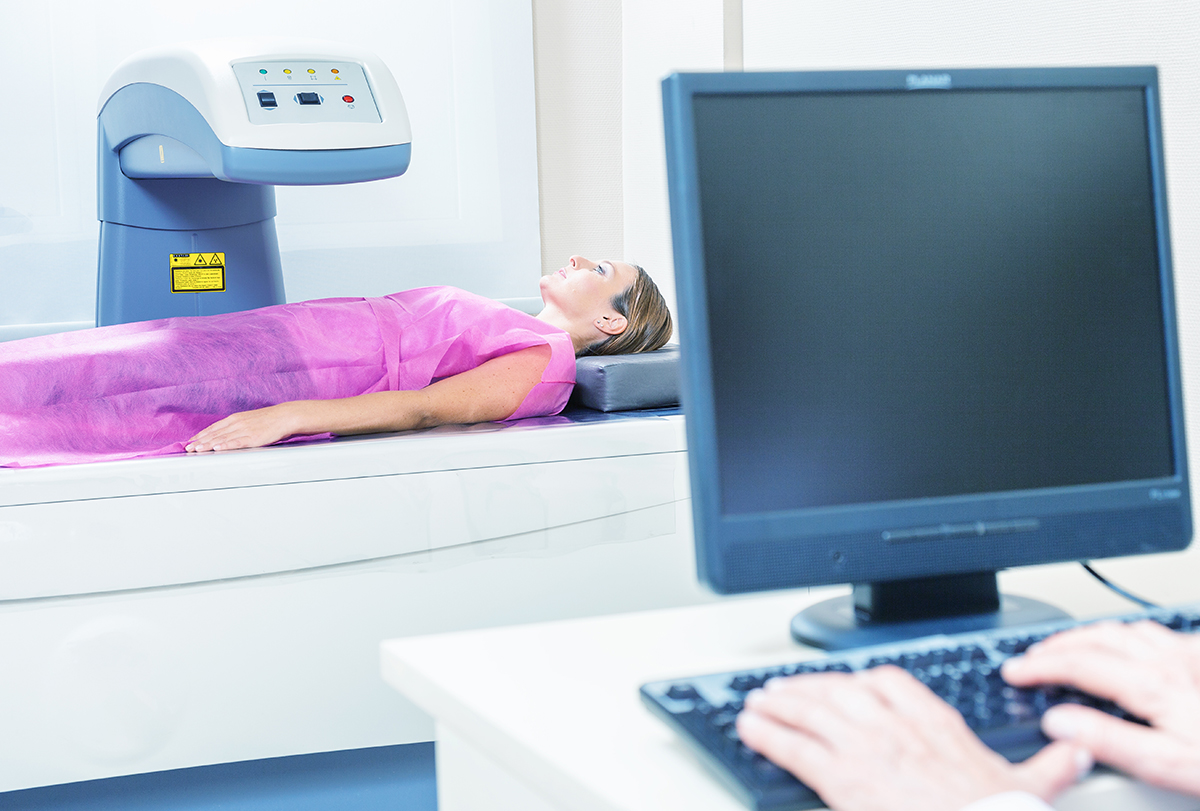
However, as they age, women are more vulnerable to health problems that can significantly affect their quality of life. (1)
It’s crucial to pay attention to what you need to do to keep your excellent health if you want to live life to the fullest and take delight in all of life’s joys.
There are various health tests that women over the age of 40 should consider. These tests can help to identify potential health concerns and provide time for early treatment, if need be.
Health Tests for Women Over 40
Talk to your doctor about the following tests so you can take better control of your health and life at 40 years old or older.
1. Complete blood profile
This is the most basic of all biochemical tests. It is a very good idea to get yearly CBPs done to keep a check on blood values and total cholesterol, “good” high-density lipoprotein (HDL) cholesterol, “bad” LDL cholesterol, and blood triglyceride levels with just a quick blood test.
Several vitamin and mineral deficiencies can also be detected in this test upon request. (1)
2. Blood glucose and HbA1C
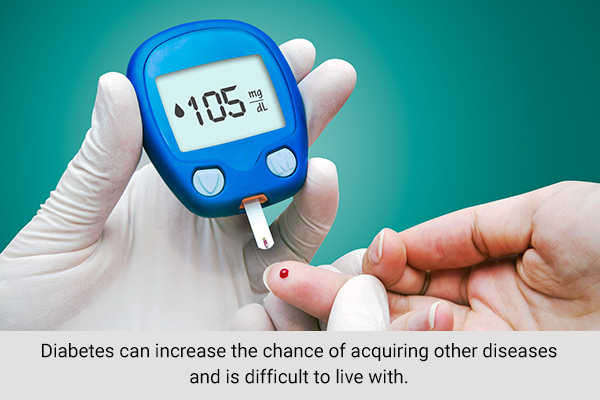
Diabetes can increase the chance of acquiring other diseases and is difficult to live with. After the age of 40, you may need to get a prediabetes and diabetes screening every three years if you are at high risk for the disease.
Glycosylated hemoglobin (HbA1C) gives an accurate picture of diabetes status. (2) It is a measure of glucose in the blood over a long period of time.
Physical inactivity, extreme obesity, and having a first-degree relative with diabetes are some risk factors for developing diabetes. Fortunately, checking your blood sugar levels simply requires a quick urine or blood test.
3. Hormonal panel
Hormone levels begin fluctuating a lot once women cross the age of 40. (3) To keep a check on this, it is recommended to have yearly or half-yearly hormonal panels performed, especially in case of a family history of any disease.
Hormonal fluctuations may lead to symptoms such as mood swings, depression, and anxiety. It is hence very important to know the underlying reason. (3)
Changes in hormone levels in the early 40s may help to predict the onset of menopause. Hence, it is a good idea to check hormonal levels regularly to have an idea of what to expect. (4)
4. Bone mineral density
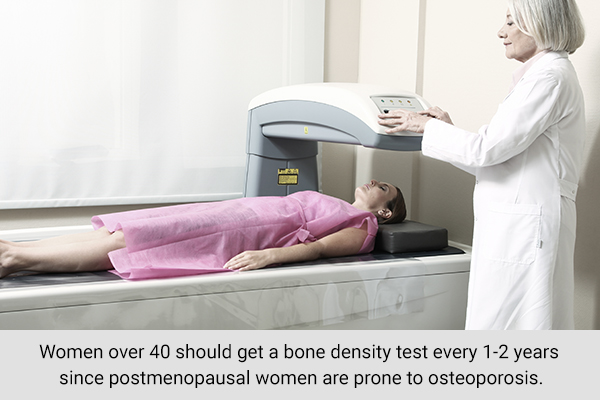
A bone density test examines the strength of your bones. It is used to screen for osteoporosis, which is a condition that can lead to fractures.
Women over 40 should get a bone density test every 1–2 years since postmenopausal women are prone to osteoporosis.
India has a high rate of osteoporosis, and it is assumed that Indian women have osteoporotic fractures earlier than other women worldwide.
A key risk factor for osteoporosis is advancing age. Having yearly BMD tests, especially for premenopausal and menopausal women, is very important to know the health status of their bones. (5)
5. Pap smear – cervical cancer
Invasive cervical cancer is a preventable disease. Women above 40 must get screening for precursor lesions in a test commonly called the Pap smear test.
A pap smear is a test that looks for changes in the cells of the cervix and can help to detect cervical cancer. It is a routine test and must be done for all women of reproductive age.
Women over the age of 40 should get a pap smear every 3–5 years. Women’s health benefits from having a regular source of healthcare and a doctor’s referral for a Pap smear. (6)
6. Cardiac fitness
Cardiac fitness is an important indicator of the health of your lungs and heart. A simple treadmill test (TMT) can tell your doctor about the health of your vital organs and can give you a good idea of how your health and workouts need to change.
Usually, cardiac fitness can be improved with endurance training. (7)
ALSO READ: 15 Best Women’s Fitness Blogs You Must Read
7. Complete eye exam
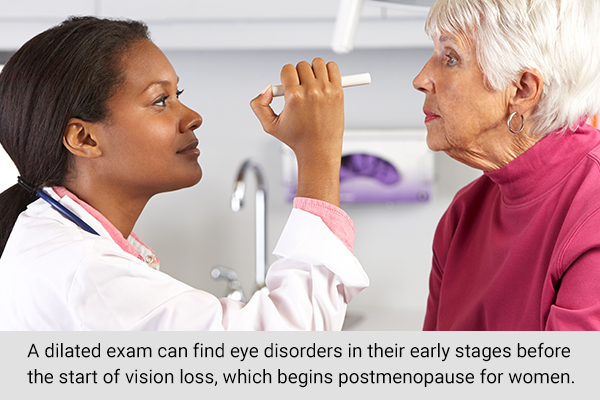
A dilated exam can find eye disorders in their early stages before the start of vision loss, which begins postmenopause for women.
However, keep in mind that many eye diseases have no early warning signs or symptoms. Early diagnosis and treatment can help you retain your vision. A complete eye exam might detect the early onset of a cataract or other age-related disorders. (8)
Visit your eye care provider for a dilated eye exam, even if you do not have any vision issues. Depending on your unique risk factors, he or she will advise you on how frequently you need one.
Get an eye checkup at least once a year if you have diabetes.
8. Breast self-exams
Women over 40 should periodically check their breasts at home, and they should schedule an annual inspection with their doctor.
Check your breasts for lumps, rashes, dimpling, and variations in size or form. You can also see if your nipples squirm when you lightly squeeze them. You should be conscious of how your breasts feel and seem, and you should inform your doctor of any changes. (9)
9. Mammograms
Self-exams of the breast are necessary, but women over 40 should also obtain mammograms. They are now the best screening method for finding breast cancer. A mammogram is an X-ray of the breasts and is used to test for breast cancer.
Women over the age of 40 should get a mammogram every 1–2 years. It is hoped that early detection of breast cancer will lower the likelihood of the disease metastasizing (spreading). (10)
10. Yearly dental exam

According to the American Dental Association, periodontitis, root and coronal caries, and dry mouth (xerostomia) are dental disorders linked to aging.
Every year, you should go to the dentist for a cleaning and an examination. This is critical to ensure the absence of oral cancer and to aid in the early diagnosis of oral issues.
For women over 40, a yearly dental exam is advised. However, women who smoke or consume more than one or two drinks per day run a higher risk of developing gum disease and oral cancer, thus regular dental exams are advised. (11)
Are There Any Other Benefits to Getting These Tests Done?
Aside from the obvious benefit of early detection and treatment of potentially life-threatening conditions, there are other benefits to getting these health tests done:
- It can give you a sense of control over your own health. Knowing your numbers and what they mean can help you be proactive about your health and make choices that are in line with your goals.
- These examinations might also give you peace of mind. Many women are concerned about their health and whether they are taking all the necessary precautions to maintain it. Having these tests completed can aid in reducing some of your worries.
- Having these tests performed now could end up saving you money later on. Early cancer identification can result in more affordable and efficient treatment alternatives. Additionally, many insurance plans will pay a small sum toward or cover preventive checkups for you.
- Getting these tests done can help you set a good example for other women in your life. Showing them that you value your health and are willing to take steps to protect it can inspire them to do the same.
- Finally, getting these tests done can give you a sense of empowerment. Taking charge of your health is an important step in living a healthy and fulfilling life.
Most-Asked Questions About Health Screening Tests for Women
What regular tests can be taken to detect early signs of common illnesses/diseases for women of all ages?
There are a number of tests that women should get in order to check for common illnesses and diseases. Some of these tests include breast exams, Pap smears, and mammograms. These tests can often detect early signs of illness or disease, which can then be treated accordingly.
In several cases, early detection and treatment can lead to better health outcomes.
Why is it important to get these tests done?
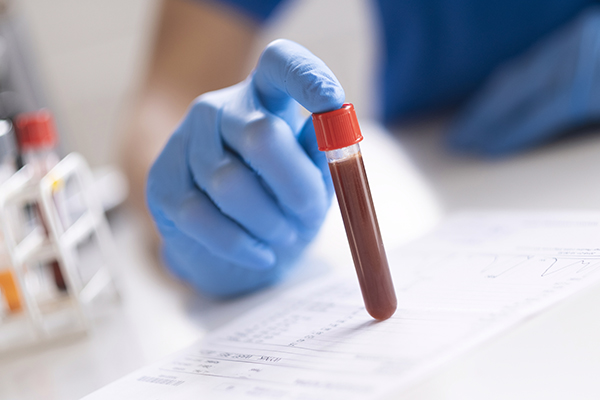
There are several important reasons to get the health tests discussed in this article.
First, these tests can aid in identifying potential health issues. Second, these tests can aid in your decision-making regarding your health and well-being.
Third, by having these tests, you may be able to prevent or postpone the start of major health issues. Fourth, these examinations can raise your standard of living.
Finally, these tests can reduce your risk of death from preventable causes.
Do these tests need to be done yearly?
Yes, these tests should be done every year or every few years, depending on the test. Your doctor can help you determine how often to have them based on your age, health history, and risk factors.
Final Word
There are several important reasons to get the health tests discussed in this article.
These examinations can aid in identifying potential health issues, making decisions about your health and well-being, preventing or delaying the start of major health issues, improving your quality of life, and reducing your risk of death from preventable causes.
- Was this article helpful?
- YES, THANKS!NOT REALLY


